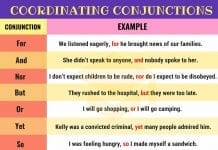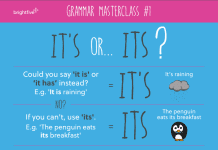
Rhetorical Question Definition
It may be confusing for you if you walk into a conversation where someone asks you, “Is the Pope Catholic?” You may be wondering why anyone would even ask that question. Doesn’t the Pope have to be Catholic?
He is, after all, the leader of the Catholic Church, is he not? The things that he says are what Catholics around the world point to when it comes to difficult questions that have to do with modern controversies. This is a great example of a rhetorical question.
What is a Rhetorical Question?
A rhetorical question is a question that is used to make a point, rather than to actually get an answer. The idea is that you want to challenge someone by pointing out
1) things that are obvious or always true or
2) things that are impossible or meant as a metaphor.
A rhetorical question is a question that’s asked to not obtain an answer, but rather to highlight a point.
No response is essential for rhetorical questions.
A rhetorical question could be intended as a question for which there is no response or for which the response is very difficult to encounter. And on the flip side, some rhetorical questions have such clear obvious answers they’re intended to highlight how obvious the answer to a preceding question was.
The main point of rhetoric, or the art of persuading and convincing, is to speak or write in a way where your point is clear without having to say something directly.
In the case of rhetorical questions, some good questions include these. For things that are obviously true, you can say:
Rhetorical Question Examples
- Is the Pope Catholic?
- Is the sky blue?
When you say something like this, the answer would be, obviously, yes. However, the way that the question is asked usually includes some level of sarcasm (note that rhetorical questions and sarcasm can go very closely together).
If that is true, you can imagine the speaker rolling their eyes to let the other person know that what they just said was something that everyone already knows. You do not need to reiterate it for everyone to hear again.
Rhetorical question examples
As an example, if individual A asked individual B, Are you going to Johns party? And individual B was going, he might respond: Is rain wet?
Orators frequently use rhetorical questions to highlight a vital stage or to prompt listeners to envision the solution.
Rhetorical questions may also be used humorously.
We also use rhetorical questions in common language, like the following statements:
- Sure, why not?
- Who knew?
- Does it seem like I care?
- Are you kidding me?
- Do birds fly?
- Is the sky blue?
Significance of Rhetorical Questions in Literature – When utilized in literature, rhetorical questions might signify that a character is having a dialog with himself or herself, and considering different options.
1. Negative Rhetorical Questions
For the other type of rhetorical questions, the idea is that you are expressing annoyance. You might be pointing out something that people have been happy to overlook even though it is very important.
Or, you could be trying to make the other person feel bad for making a mistake or trying to speak up when you do not need the help. For these questions, they can come across as very rude.
If you say something like this, the other person should know right away that you are very unhappy about what they are doing. You want to get away from it as much as possible.
- Don’t you think that I already knew that?
- Can’t you do anything right?
- Would you like to say that a little bit louder? (talking about someone sharing a secret that should not be said out loud, should not be share with bigger audience)
For these questions, the other person could feel that they are being attacked. Most people will only use these when they are incredibly frustrated and will probably need to apologize about it later.
2. Metaphorical Rhetorical Questions
For this type of question, you are trying to show just what kind of problem something is, or trying to describe it in a way that someone can better understand. One of the best-known examples of this type of metaphorical rhetorical question is from the movie The Sound of Music.
After Maria, the main character runs away from the abbey (the place where nuns live). She is shown to be a problem time after time. When there is trouble to be caused, Maria is the one that instigates it. For this reason, the song that asks How do you solve a problem like Maria is asked over and over. The answers that the nuns give are as follows:
- How do you catch a cloud and pin it down?
- How do you hold a moonbeam in your hand?
- How do you keep a wave upon the sand?
The idea here is that these things described in the rhetorical questions are impossible. You cannot hold a cloud, moonbeam, or a wave – and neither can you control Maria. While this is a good way to paint a picture, the idea is to compare the personality of Maria to something that you can’t capture, tame, or make her behave in any certain way.
Writers use rhetorical questions to try to persuade someone or to make their writing more interesting. Typically used to convince people to agree with a silly or meaningless statement.
Usage of Rhetorical Questions
In general, rhetorical questions are great if you want your audience to pay special attention to something. When you ask them, they draw attention to specific ideas. If you are asking about whether someone thinks you already knew that, that person should understand that, of course, you knew that.
It was an insult to you that they even had to ask. You do not want to hear an answer, and the other person should be wise enough to listen to your anger.
Rhetorical questions are often used in everyday speech when there are high emotions in something. These often include frustration, anger, irritation, and disappointment. You are not necessarily trying to approach a conflict in a constructive way; you just want to get your point across.
Learn English
- Types of Questions in English: Yes-No, Choice, Wh-questions, Indirect …
- Essay to convince your audience of helping other people
- What part of speech is SUCH? [Grammar]
- 12 Other ways to say The Author
- Punctuation Marks – Quotation Marks – Question Mark
- How To Start An Essay? • Essay topics • What is an essay • Hooks for essays
- Numbers, Years, Length, Dates in English!
- ☎️ Phone Conversation: Most Commonly Used English Phrases on the Phone
- User was raised an issue on friday? OR User raised an issue on friday?
Browse by Category
- Abbreviations
- acronyms
- Advanced English Lesson
- Adverbs
- Apps
- Arabic
- Articles
- Beginner English
- Books
- Business English
- Clauses
- Collocations
- Conjunctions
- Difference Between
- English Grammar
- English Idioms
- English Learning Tips
- English Questions and Answers
- English Speaking
- English Test
- English Videos
- English Vocabulary
- English Vocabulary Dictionary
- English Writing
- For Kids
- For Teachers
- French
- Games
- German
- Hindi
- Hungarian
- IELTS
- Infographics
- Intermediate English
- Italian
- Japanese
- Learn English
- Listening Skills
- Lyrics
- Names
- Phrasal Verbs
- Portuguese
- Prefix
- Prepositions
- Proverbs
- Q&A
- Quiz
- Quotes
- Russian
- Should
- Spanish
- Suffix
- Synonyms
- Teach English
- Technology
- Uncategorized
- Understanding
- Useful English learning websites
- Vietnamese
A Adjectives B Business English C D dictionary E English grammar English Idioms English language English Learning Tips English phrases English teacher English Vocabulary English Vocabulary English words F G H how to learn english I idioms Infographic J L Learn English M N noun O P phrasal verb R S Skype T teach English Teaching English as a foreign language Text Abbreviations The Jungle Book tips U W Y
Latest Posts
- Supposition Meaning
- Summary of how Components of Health are related to Wellness
- Understanding the Extroverted Introvert
- Very vs Vary: Understanding the Difference
- Inspiring Introvert Quotes for Quiet Reflection
Latest Comments

Hello. Thank you very much for the most detailed and clear explanation! Could you please comment on this sentence where…

“Hey there! Just wanted to send you a bunch of good luck vibes as you go for captain of the…

i need a good luck message for a teen trying out for captain of the drill team with the word…

Very useful for learning english language. Thank you!

thanks for post

























